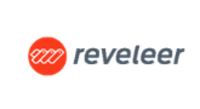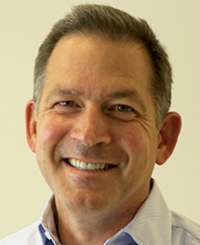Tuesday, February 25, 2020
Interview with Jay Ackerman, Reveleer

Glendale-based Reveleer (www.reveleer.com) is a developer of cloud-based software used for managing medical data, and recently announced a Series C funding round from investors Boston Millenia Partners and Upfront Ventures. We casught up with CEO Jay Ackerman to learn more about the company, its market, and how the company is looking to help its customers—health plans and managed care organizations--with risk management and quality improvement using technology.
What is Reveleer?

Jay Ackerman: We're delivering software technology to health plans, to facilitate how they execute critical programs that support the movement to value-based care. The shift to value-based care recognizes health plans for delivering better care, and also pays them more money per month to cover the cost of care for their members. The sicker the member, the more the government pays plans. They want to ensure healthy members and better care for those who need more care. Our platform helps health plans represent how they are performing in those two areas, which is a critical dimension of the value care movement. They want to demonstrate that they are providing good care, and demonstrating that they are caring for both well members and those that are not so well. Our platform is changing how they think about solving that, disrupting a market which has been served by throwing lots of people at it. Right now, outside entities do it on their behalf with their proprietary technology, and we're trying to give them tools to do it on their own, in a highly efficient manner.
What's your background?
Jay Ackerman: I have a tech background, and have worked at a number of software and SaaS companies, primarily in go-to-market. I've been a sales leader, a Chief Revenue Officer, Head of Customer Success. More recently, my position was Chief Revenue Officer for Guidance Software, a company which provided forensic and cybersecurity software in Pasadena. We're backed by Upfront Ventures, which is a well known venture capital firm here in SoCal. They backed the company before I came in, and I loved the opportunity, I loved the market, and they wanted an executive to lead it and take it forward. They needed someone who understood the software, and the transition from the service market to the software market, and I lined up with that.
How accepting are health plans of new solutions like yours?
Jay Ackerman: It's really easy to identify our targets. There are a defined set of health plans that can buy what we have to offer, and you have to get a foot in the door. We talk about two things. One, is we'll meet the plan where they are on their journey from tech-enabled services to software-as-a-srevice. If they want tech-enabled services, we'll get in there and operate with them, and shine the light on how to get there. We've had great success with a number of health plans, who started where this market traditionally operates, and are now moving completely to operating on their own using the platform. There's a long game as they migrate over time. It's been working for us, and we've had massive wins with the top three health plans. As we move through the next three months, we should be able to take that story to the market, and leverage more fully our go-to-market activity.
Why the attraction to this opportunity for you?
Jay Ackerman: The way I got excited about this opportunity, and what drew them there, is this is a 3 billion dollar market today. If you look at the tech-enabled services we are trying to disrupt, three billion is a pretty good market. That's what got Upfront interested, and as I dove into those numbers to validate the market, I got more and more confidence the market really was that large.
What are you biggest challenges and goals now as a company?
Jay Ackerman: The biggest challenge for us is around talent. Overall, the market is hot, and unemployment is quite low across the entire United States. Then, you dive into SoCal, where the marketplace is very hot for talent in the B2B area, so it's been a challenge to attract talent. While that is challenging, I've been encouraged at the B2B and healthcare talent we've seen. Two, our challenge is staying focused on the things that matter. It's easy to get distracted if you have a customer or prospect asking for something adjacent to what we're doing. It's important to have a process so you have clear objectives, so you can get better at saying no to the right things. Number three, we made our first foray into machine learning last year, and we've introduced some pretty fascinating technology around medical records. That machine learning can automatically read charts, and that is foundational and what is allowing us to step forward this year and do natural language processing on medical records, automatically reading key health information on members. That has laid a great foundation for us, for things we'll bring to life this year.
What's the biggest lesson you've learned over the years you're applying here?
Jay Ackerman: Number one, the customer is at the center of everything we do. If we don't delight them, then our world gets really challenging. The key thing, is that every stays focused on delivering for the customer. We have to understand what success means. When customers enter agreements with us, we have a clear contract with service levels that we are responsible for, however, that doesn't define if they are happy and delighted. Our team wants to get better at making sure they are satisfied, and growing the business. I've been fortunate to be part of three companies that have gone from sub-$20 million to $300M in revenues, from private to public, and scaling processes has to be part of how you operate. We have spent a lot of time looking at what we do, and how we do it, how to onboard employees, how to sell to customers, and when we sell them something how to onboard them, and all of that, and can we do that as easily for ten customers as we can today for one. If we think the answer is no, we get back to work creating a scalable activity, which is not dependent on hero execution by a single person. I learned a lot from some very talented companies and teams around scaling methodology, and our team is doing their part to make sure we can keep moving at the pace and level of group we're all interested in.
Thanks!